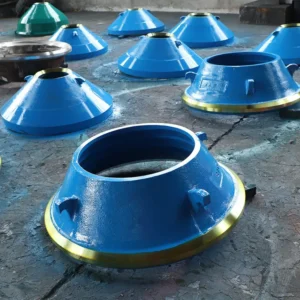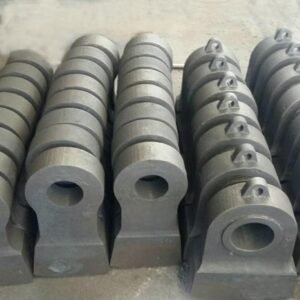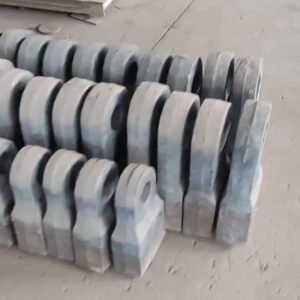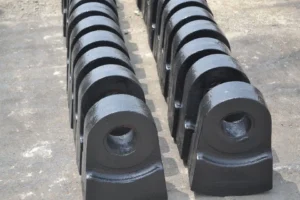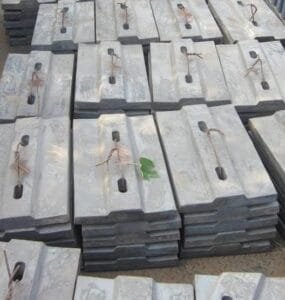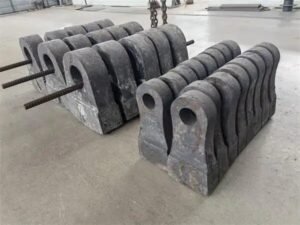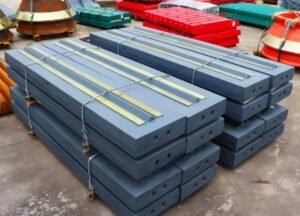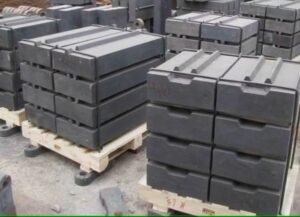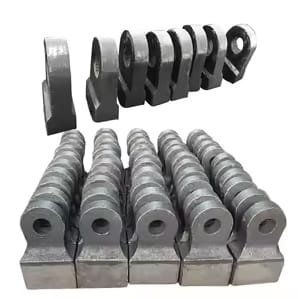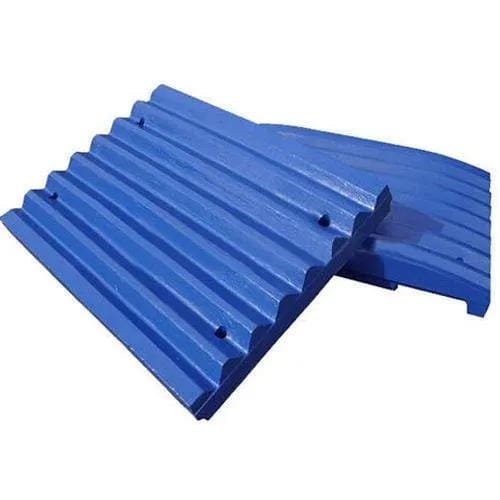
Choosing the right material for your jaw crusher wear parts is essential to ensure efficient crushing, long service life, and reduced costs. In this article, we’ll explore the top materials used for jaw crusher wear parts, their benefits, and how to select the best one for your operation.
Why Material Matters for Jaw Crusher Wear Parts
The material of your jaw crusher wear parts directly impacts their durability, wear resistance, and performance. Using inferior materials can lead to frequent replacements, higher maintenance costs, and reduced crushing efficiency.
Top Materials for Jaw Crusher Wear Parts
High-Manganese Steel
- Widely used for jaw crusher wear parts, it offers excellent toughness and work hardening properties.
- Ideal for high-impact applications where wear resistance is crucial.
Alloy Steel
- Combines hardness and ductility, making it suitable for abrasive crushing environments.
- Great for extended service life in moderate-impact applications.
Chrome Steel
- High wear resistance with excellent hardness.
- Best for low-impact, high-abrasion crushing processes.
Martensitic Steel
- Provides a balance of hardness and toughness.
- Performs well in environments with both impact and abrasion.
Tungsten Carbide
- Extreme wear resistance and hardness.
- Often used for small inserts in the most demanding applications.
How to Choose the Right Material
- Crushing Application: Consider the type of material being processed and its abrasiveness.
- Impact Levels: Select materials that can handle the impact force in your operation.
- Cost vs. Longevity: Balance initial material costs with expected lifespan to minimize overall expenses.
Conclusion
Selecting the right material for jaw crusher wear parts ensures efficient operation, reduced maintenance, and long-term cost savings. Evaluate your operational needs and consult with an expert to make the best choice for your crusher.

